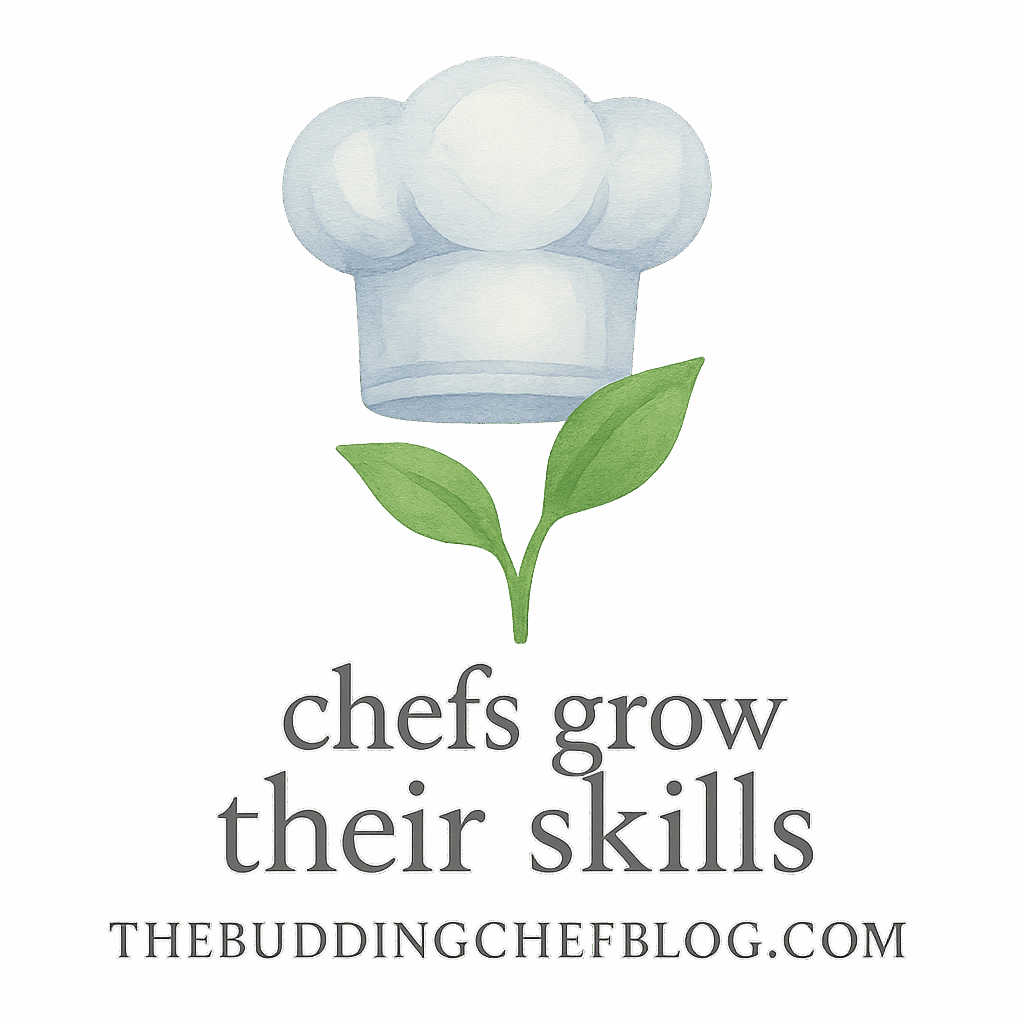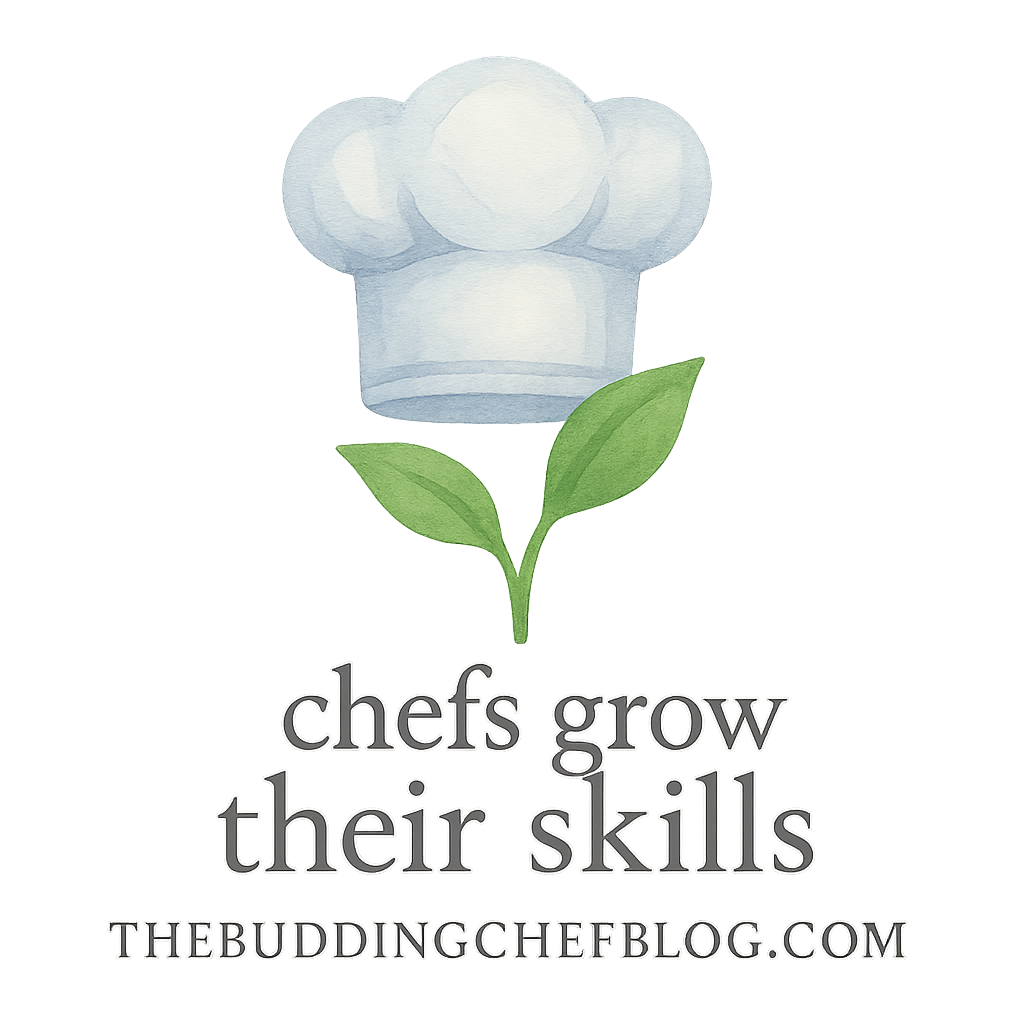Introduction
So, you want to become a chef but culinary school isn’t in the cards right now? Maybe it’s too expensive, time-consuming, or you simply prefer to learn at your own pace. Here’s the good news: You don’t need a fancy diploma to start cooking like a pro. Many successful chefs began in their home kitchens. If you’re serious about leveling up your cooking skills, this guide is your roadmap.
Today, we’re diving into 7 ways beginner chefs can practice without a culinary school. Get ready to explore smart, practical, and affordable methods that build your skills and boost your kitchen confidence—right from your own stove.
1. Practice Recipes at Home Consistently
Cooking is a skill. And like any skill, the more you practice, the better you get. The kitchen is your training ground, and recipes are your drills.
Start Simple and Build Up
Don’t try to make Beef Wellington on day one. Start with scrambled eggs, then move to stir-fries or roasted chicken. As your skills grow, tackle more complex dishes like risottos or soufflés.
Follow Step-by-Step Guides
There’s no shame in reading recipes like instruction manuals. They’re there to help you build muscle memory. Stick to the process, and eventually, cooking will become second nature.
Use Online Resources
The Recipe Practice section of The Budding Chef Blog is a goldmine. Try those tested recipes to learn structure, technique, and timing. They’re designed with beginners in mind.
2. Master Basic Cooking Techniques
Knowing the “how” is just as important as the “what” in cooking. Mastering techniques helps you adapt recipes, correct mistakes, and get creative.
Knife Skills Are a Must
From julienning carrots to dicing onions, knife skills are foundational. Invest time learning proper grips, cuts, and sharpening techniques. It’ll save you time—and fingers.
Heat Management and Cooking Methods
Whether you’re sautéing, baking, or braising, understanding how heat transforms food is a game-changer. Practice simmering without boiling and searing without burning.
Internal Link to Basic Techniques
Learn more in the Basic Cooking Techniques section for a deeper dive into sautéing, blanching, and beyond.
3. Learn Ingredient Knowledge Like a Pro
The best chefs understand their ingredients inside and out. It’s not just what you cook—it’s what you cook with.
Understand Flavor Profiles
Know which herbs enhance which proteins, or how acidity brightens a rich dish. Mastering the balance of salt, fat, acid, and heat transforms your meals.
Seasonal and Budget Ingredients
Learning to cook with what’s in season—or what’s on sale—is key. It teaches adaptability and cost-efficiency. It also leads to fresher, tastier results.
Internal Link to Ingredient Knowledge
Check out the Ingredient Knowledge hub for flavor pairing tips, pantry staples, and how to shop like a chef.

4. Invest in the Right Kitchen Tools
You don’t need a Michelin-starred kitchen to cook like a pro, but having the right tools makes a huge difference.
Start with Essentials
A sharp chef’s knife, a good cutting board, a sauté pan, and a saucepan. That’s it. These are your core tools. Learn to use them well.
Use What You Have Smartly
Don’t rush to buy fancy gadgets. Instead, learn to maximize the tools you already own.
Internal Link to Kitchen Tools and Equipment
Visit Kitchen Tools & Equipment to see beginner-friendly essentials and pro tips on smart investments.
5. Watch and Learn from Others
Sometimes, watching someone do it is better than reading about it. Visual learning brings techniques to life.
YouTube and Masterclasses
There are thousands of cooking tutorials online. Look for beginner-friendly channels or search specific skills you want to learn.
Cooking Shows and Documentaries
Shows like Chef’s Table, Salt Fat Acid Heat, or The Great British Baking Show don’t just entertain—they educate. Watch how professionals work and adapt their techniques.
6. Embrace Affordable Cooking Challenges
Constraints force creativity. Challenge yourself to cook with a limited budget or fewer ingredients.
Try Budget-Friendly Experiments
Cook three meals with a $10 grocery list. Or make five dishes from one protein. These challenges improve your resourcefulness.
Meal Planning Practice
Meal planning isn’t just for families—it’s a crucial chef skill. It teaches organization, timing, and waste reduction.
Internal Link to Affordable and Budget Tags
Explore budget tips and affordable meals in Affordable and Budget categories on The Budding Chef Blog.
7. Build Good Habits and Practice Consistently
Becoming a chef is about consistency. Make cooking a regular habit, and you’ll see noticeable improvement in no time.
Daily Practice is Key
Even if it’s just a quick breakfast, cook something every day. Build routine, confidence, and speed.
Reflect on Mistakes
Burned a dish? Underseasoned a stew? Good. That’s how you learn. Keep a cooking journal to track what works and what doesn’t.
Track Your Improvement
Celebrate small wins—like your first perfect omelet or homemade pasta. This keeps you motivated.
Explore more about habits and progress in the Professional Growth section, and check out the Challenges tag to set goals and track your development.
Conclusion
You don’t need culinary school to start cooking like a chef. You just need passion, consistency, and a willingness to learn from your mistakes. Whether it’s practicing recipes, mastering the basics, learning about ingredients, or simply cooking more often—these seven strategies will put you on the path to culinary greatness.
So, what are you waiting for? Tie on your apron, grab your pan, and start cooking your way to chef status—no tuition required.
Don’t forget to explore other resources on The Budding Chef Blog to keep your skills sharp and your meals delicious.
FAQs
1. Can I really become a chef without going to culinary school?
Absolutely! Many chefs are self-taught. What matters is your commitment to practice, learn, and grow consistently.
2. What are the most important kitchen tools for beginners?
Start with a sharp knife, cutting board, sauté pan, saucepan, and measuring tools. Learn to use them well before expanding your collection.
3. How can I improve my cooking skills on a budget?
Use affordable ingredients, plan your meals, and check out resources like the Affordable tag on The Budding Chef Blog.
4. Where can I find beginner-friendly recipes?
Head to the Recipe Practice section for clear, easy-to-follow recipes designed for beginners.
5. How often should I practice cooking to improve?
Aim for daily cooking—even simple meals count. Repetition helps build confidence and muscle memory.
6. What if I keep making mistakes in the kitchen?
Mistakes are part of learning! Keep a cooking journal, reflect on what went wrong, and try again.
7. Are there any free online resources for learning cooking techniques?
Yes! Use YouTube, food blogs, and the Basic Cooking Techniques page to learn the ropes at no cost.


